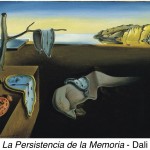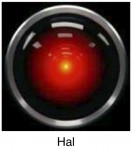Yesterday afternoon, the front headline of the New York Times online featured an article about science! Ten well-established scientists from a variety of fields were asked what they think 2011 will bring in terms of scientific advances. My own field, chemistry, isn’t one of the ones represented by the article; nevertheless an interesting range is covered: space science, conservation ecology, game design, ocean science, climate change, genomics, engineering, neuroscience, biotechnology, and mathematics.
My two favorite predictions are those of the neuroscientist and the mathematician.
 The neuroscientist, Prof. André Fenton from NYU, thinks that as early as next year we may be able to actually “see” a memory. When memories are formed, it is believed that neurons grow branches to connect to other neurons. In the last couple of years, the protein kinasean enzyme that phosphorylates other proteins PKM-zeta has been identified as a critical molecule present in these tiny new branches that are formed. Thus, neuroscientists hope that they can compare the distribution of PKM-zeta in the brains of animals that have just been trained to do a task and animals that have not been trained. Tracking the action of PKM-zeta in the brains could essentially provide a physical map of the neural connections making the memory.
The neuroscientist, Prof. André Fenton from NYU, thinks that as early as next year we may be able to actually “see” a memory. When memories are formed, it is believed that neurons grow branches to connect to other neurons. In the last couple of years, the protein kinasean enzyme that phosphorylates other proteins PKM-zeta has been identified as a critical molecule present in these tiny new branches that are formed. Thus, neuroscientists hope that they can compare the distribution of PKM-zeta in the brains of animals that have just been trained to do a task and animals that have not been trained. Tracking the action of PKM-zeta in the brains could essentially provide a physical map of the neural connections making the memory.
Whoa. Think that’s hard to understand? Try the prediction of the mathematician, Prof. Steven Strogatz of Cornell. He says:
We’re going to see scientific results that are correct, that are predictive, but are without explanation. We may be able to do science without insight, and we may have to learn to live without it. Science will still progress, but computers will tell us things that are true, and we won’t understand them.
 So computers are expected to start figuring out laws of nature (such as laws for how memories are formed?!) and making predictions that are mathematically correct, but we won’t be able to understand what they mean. I guess we will need to invent bigger brains next to understand them.
So computers are expected to start figuring out laws of nature (such as laws for how memories are formed?!) and making predictions that are mathematically correct, but we won’t be able to understand what they mean. I guess we will need to invent bigger brains next to understand them.

